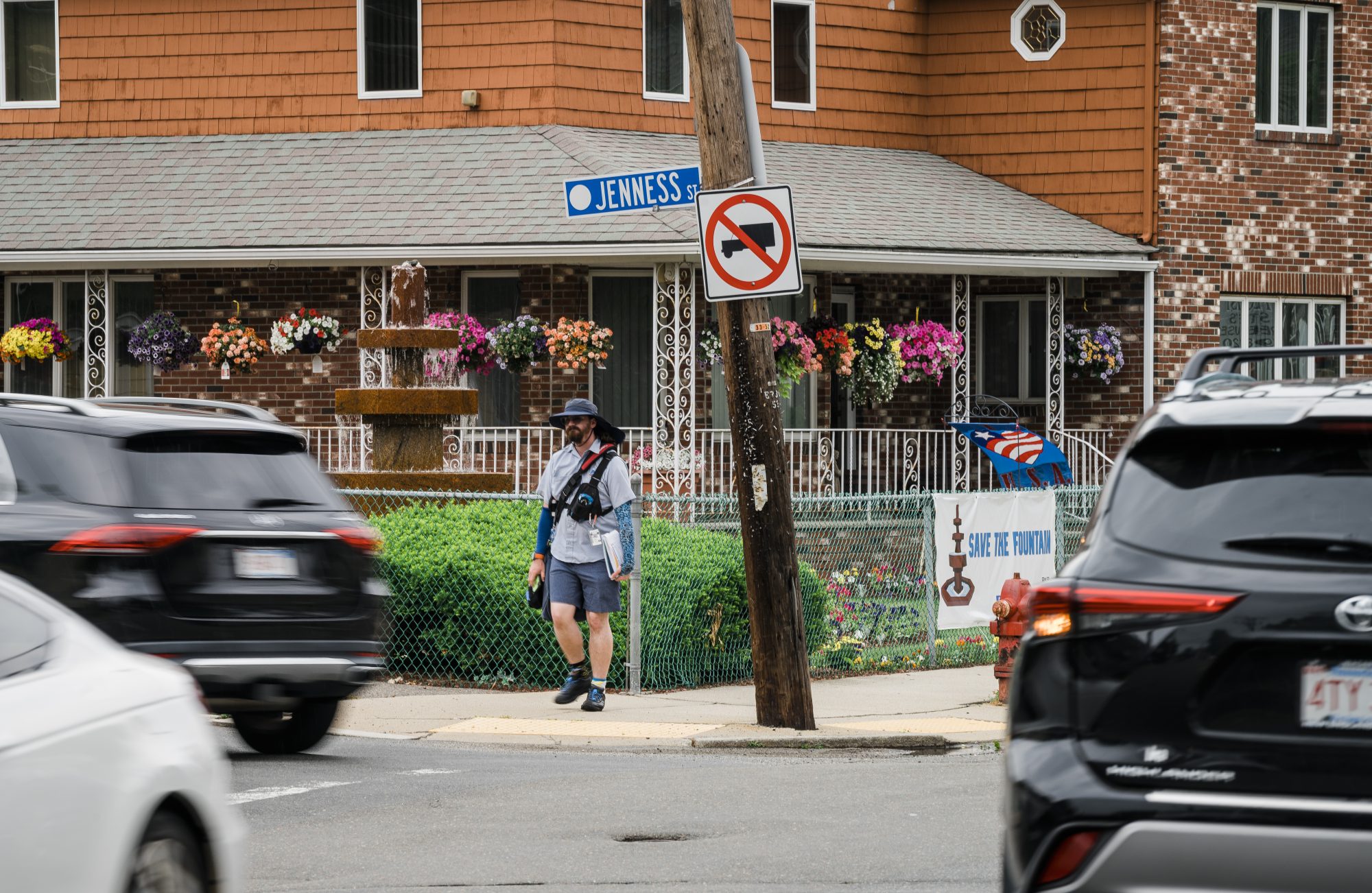LYNN — According to the Massachusetts Department of Transportation (MassDOT), the intersections of Broadway and Jenness Street, and Broadway and Euclid Avenue are among the 200 most dangerous intersections in the Commonwealth.
“How many intersections are there in the Commonwealth? There’s hundreds of thousands of intersections and [these intersections] rose to the top in terms of its need for safety,” Tighe & Bond Senior Vice President of Transportation and Business Richard Benevento said.
Based on data collected from 2018 to 2021, an average of 24 accidents happen at these intersections per year.
To improve the safety of these intersections, MassDOT has a $6 million project in the works that it hired engineering company Tighe & Bond to complete.
According to Tighe & Bond’s website, the improvements will replace outdated and non-compliant traffic-signal equipment; reconstruct sidewalks, crosswalks, and handicap ramps; add bicycle facilities; and make improvements to transit stops, such as Transit Signal Priority and roadway rehabilitation.
In order to complete the project, the city has to use the property of residents in the area through temporary and permanent easements.
Temporary easements, according to Tighe & Bond, are when a person’s property is temporarily used for the duration of a project. Permanent easements are when private property is permanently used for the maintenance of things such as overhead wires, underground utilities, or, in the case of this project, sidewalk reconstruction.
When a resident does not approve the easement, their property can be taken through eminent domain, according to Mayor Jared Nicholson. Residents whose property is used are compensated monetarily, he said.
Some residents who abut the project are raising concerns. At an informational session about the project Monday night organized by the city, state politicians, MassDOT, and Tighe & Bond, those concerned brought up issues ranging from increased traffic to lack of communication.
One concerned resident was Salvy Migliaccio, a former City Council president and owner of Salvy the Florist & Steve’s Greenhouses. Migliaccio has opposed the project since residents received letters in April that their properties would be used.
One of his initial concerns was that the originally-proposed improved bus stop would run in front of his business in an area his customers park in. Under the original plan, Migliaccio was going to have to remove a fountain that has been in his yard for 40 years to pave a parking lot.
During the meeting Monday, Migliaccio asked if the project’s plan was “100% complete.”
Nicholson said that changes to the project are still being made. In fact, one change has already been made recently in response to Migliaccio’s concerns.
In working with the Massachusetts Bay Transportation Authority, Nicholson and the state delegation were able to consolidate the originally-proposed bus stop with another down the street. Legal parking spaces in the area were also added to the plan.
“By moving it, we’ve now created on-street parking for the neighborhood, but most likely for his customers, which I think is great. We want this project to benefit the neighborhood, to benefit all the neighbors, to benefit the local businesses, so that’s a great result for us,” Nicholson said in an interview with The Daily Item Tuesday.
Even so, Migliaccio still has concerns over the use of his property for the project.
“The burden of this project falls on me,” he told The Item Tuesday. “It’s pretty clear that this project can’t move forward unless they take a piece of my property.”
Currently, the proposed permanent easement for Migliaccio’s property entails using 17 square feet on the corner of his property in order to round out the sidewalk to make it compliant with Americans with Disabilities Act regulations, Nicholson said.
“Granting easements around the entire perimeter of my property and my home, when construction begins or whatever they plan on doing, where they are going to take down the fence and do whatever it is, I made it clear that it’s going to be very difficult to conduct business. You know it’s going to be very difficult for me to live in that environment,” Migliaccio said.
Conversations about this project like the one held Monday night, he said, should have happened many years ago. Ideally, he added, the project should not happen at all.
“I think that this process has been flawed,” Migliaccio said. “These things should have been considered a long time ago.”
Another concern raised by other residents in the area is how much neighborhood traffic could increase during construction. Drivers already use nearby side streets to avoid the intersections, and residents said that will only get worse once construction starts.
Sarah Martel, a resident of the area, said the extra traffic could put her kids in danger.
Some said the problem with the intersection of Jenness Street and Broadway is drivers running the stop sign. Tighe & Bond said they are planning to add traffic signals there to prevent such incidents from occurring.
A lack of communication from the city and MassDOT was another issue that was brought up at the information session. The letters about property easements were only sent out in English, one resident said, and not every resident in that area speaks English as their first language.
In response, Nicholson said that language access is a priority and acknowledged that it is something the city needs to improve.
Residents were able to put their name and address down on a signup sheet to have somebody from the project go to their home and answer property-specific questions. The information session, which started at 6:30 p.m. Monday, continued into the late hours of the night.
“I think it was a really productive conversation,” Nicholson said in the interview. “The engineers have really studied this and the idea is that because it’s such a hectic and chaotic intersection, it creates so many challenges for folks navigating it. The project that’s been designed would bring order to that in a way that would improve the overall traffic flow.”

